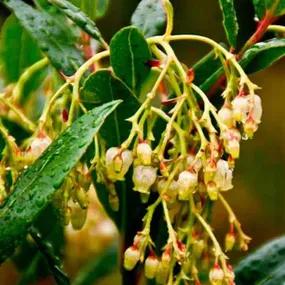Buying Exotic & Wild Fruit Trees Online:
Order Potted Trees Now For August Delivery
Pre-Order Bareroot Trees For 2025/26 Winter Season
These fruit trees have little in common with each other, except that they are less commonly grown!
They are generally hard to find in the shops, and none of them taste as good when bought as the real thing from your own garden.
Despite their exotic Eastern origins, they can thrive in most British gardens, given the right conditions.
Barerooted trees are delivered between November and the end of March, the winter planting season.
Pot grown varieties are available year round.
- Order now, pay later: we don't charge your card until before delivery
- When your order is ready: your mail order fruit trees are delivered by next working day courier (not the next working day after ordering!)
- Friendly support: if there is anything wrong with your plants when you inspect them, Contact Us within 5 working days
All bareroot plants are covered by our Refund Guarantee, so you can give them a whirl with complete confidence.
This selection of exotic and unusual fruit are generally easy to grow and hardy across the UK, but they are not all able to produce ripe fruit outdoors when growing in colder regions of the North & Scotland, where a greenhouse may be necessary to get worthwhile crops.
Please read their descriptions carefully before buying.
All of these plants are genuinely self-fertile and do not need a pollination partner
Which Exotic Fruit Tree Should I Buy?
The common and Brown Turkey Figs crop fairly well in the Southern half of Great Britain, but given a sunny, South facing wall and a sheltered microclimate, they can be coaxed into cropping outdoors in a good year on the west coast up as far North as Glasgow. Even without their fruit, they are a handsome foliage plant for ornamental gardens.
Still, they are really a greenhouse crop in the North and Scotland, which is now easier than ever thanks to the dwarf fig, Little Miss Figgy.
Medlars used to be a common delicacy in Britain, and they make a fine ornamental specimen or fruiting hedge. They are hardy and reasonably shade-tolerant, but like any fruit tree crop best in full sun.
Quinces have perfume equal to a great rose or lily.
King James I Mulberries are also very hardy and will crop well anywhere, but require a sheltered site and rich soil. They are such lovely trees when mature, especially in Autumn.
The fruit do not travel at all, so dried mulberries are all you ever find in the shops: nothing to compare with a fresh one!




 1.webp)
 1.webp)
 Img 1.webp)
 2.webp)
 Img 1.webp)
 Img 1.webp)
 2.webp)
 1.webp)
 1.webp)
 3.webp)
 3.webp)

 Img 2.webp)
 1.webp)